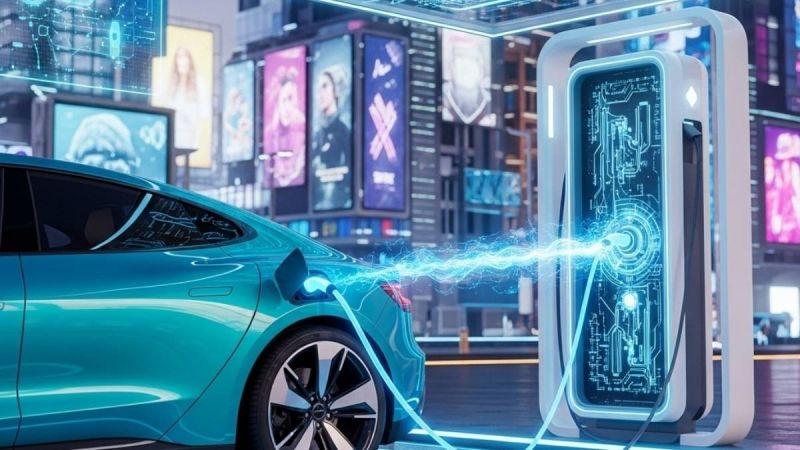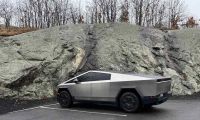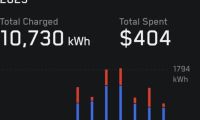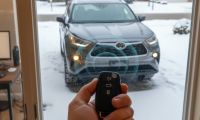Here in Bend, where the shift towards electric vehicles is becoming increasingly palpable, the news emanating from China about a revolutionary car battery has sent ripples of both excitement and concern through the automotive and energy sectors. Chinese battery giant Gotion High-Tech has unveiled a next-generation solid-state battery boasting recharge times that rival gasoline fill-ups – a full charge in a mere 7 minutes – and a lifespan exceeding a staggering 800,000 kilometers (nearly 500,000 miles). This breakthrough, promising to be lighter, faster, and dramatically safer than conventional lithium-ion batteries, could catapult China years ahead in the global race for EV supremacy and fundamentally alter the landscape of electric mobility.
The Dawn of Solid-State: Leaving Liquid Electrolytes Behind
The Achilles' heel of current lithium-ion batteries has always been their liquid electrolyte, which is inherently flammable and prone to thermal runaway – the dreaded scenario that leads to battery fires. Gotion's new cell tackles this critical safety concern head-on by utilizing a non-flammable ceramic electrolyte. This solid electrolyte not only eliminates the fire risks associated with liquid electrolytes but also enables the use of a lithium-metal anode. Lithium metal has a significantly higher theoretical energy density compared to the graphite anodes used in most lithium-ion batteries, meaning more energy can be packed into a smaller and lighter package. This translates to lighter vehicles, longer driving ranges, or a combination of both – a trifecta that has long been the holy grail of EV battery research.
Furthermore, the solid-state nature of the battery provides enhanced thermal stability. Gotion claims minimal thermal runaway even when the battery is subjected to physical damage or overcharging, offering a level of safety that could significantly ease consumer anxieties surrounding EV battery technology. Imagine a future where "battery fire" is relegated to the history books of early EV development – a compelling prospect indeed.
Lightning-Fast Charging: Reimagining the Refueling Experience
However, the truly standout feature of Gotion's new battery is its astonishingly rapid recharge rate. The company claims the cell can reach an 80% charge in under 5 minutes and a full 100% charge in just 7 minutes. To put this into perspective, this charge time is faster than most people spend refueling a gasoline-powered vehicle. This capability directly addresses one of the biggest hurdles to mass EV adoption: range anxiety and the perceived inconvenience of long charging times. If EVs can be "fueled up" as quickly as their gasoline counterparts, a major psychological barrier for potential buyers will be dismantled, paving the way for wider acceptance and a more seamless transition to electric mobility. This rapid charging is attributed to optimized ion transport channels and a thin-layer architecture within the cell, allowing lithium ions to move much more quickly between the anode and cathode.
Real-World Validation: Field Testing Success in Demanding Conditions
This isn't just lab-based hype. Gotion reports that its solid-state battery has already undergone rigorous field testing in city buses and delivery trucks in Guangdong province. These are demanding applications that subject batteries to high temperatures, heavy loads, and frequent charging and discharging cycles. The fact that the battery reportedly outperformed all other batteries in these challenging "high-heat, high-load conditions" provides significant real-world validation of its durability and performance claims. This successful testing in demanding commercial applications suggests a robustness and reliability that bodes well for its eventual use in passenger vehicles.
China's Leap Ahead: A Potential Technological Sledgehammer
With mass production planned for 2026, Gotion's solid-state battery has the potential to give China a significant technological and competitive advantage in the global EV market. While other companies and research institutions worldwide are also working on solid-state battery technology, Gotion's claimed specifications and near-term production timeline suggest they may be on the verge of a major breakthrough. This could allow Chinese EV manufacturers to produce vehicles with longer ranges, faster charging times, and enhanced safety, potentially at competitive prices, giving them a powerful edge in both domestic and international markets. For countries like the United States, which are also heavily investing in EV technology and battery manufacturing, this development underscores the urgency and intensity of the global race for next-generation EV battery tech.
Wrapping Up: The Solid-State Dawn and a Shifting Global EV Landscape
Gotion High-Tech's announcement of a 7-minute charging, 800,000-kilometer lifespan solid-state battery represents a monumental leap forward in electric vehicle technology. By addressing critical limitations of current lithium-ion batteries – namely safety, charging speed, and energy density – this innovation has the potential to be a true game-changer for the EV industry. The successful field testing in demanding real-world applications and the ambitious timeline for mass production in 2026 suggest that China is poised to take a commanding lead in the next generation of EV battery technology. As the world transitions towards electric mobility, this breakthrough could accelerate adoption rates, alleviate consumer concerns, and fundamentally reshape the competitive landscape of the global automotive market, leaving the era of long charging times and range anxiety firmly in the rearview mirror.
Disclosure: Image Rendered with Gemini
Rob Enderle is a technology analyst at Torque News who covers automotive technology and battery developments. You can learn more about Rob on Wikipedia and follow his articles on Forbes, X, and LinkedIn.
Set as google preferred source












Comments
Use the generally accepted…
Permalink
Use the generally accepted slam of “range anxiety”, because, who really drives 300+ miles in and afternoon and then throw in an even better one, and new to me, “major psychological barrier”.
BAM!
Slam those ignorant and dirty carbon burners lol.